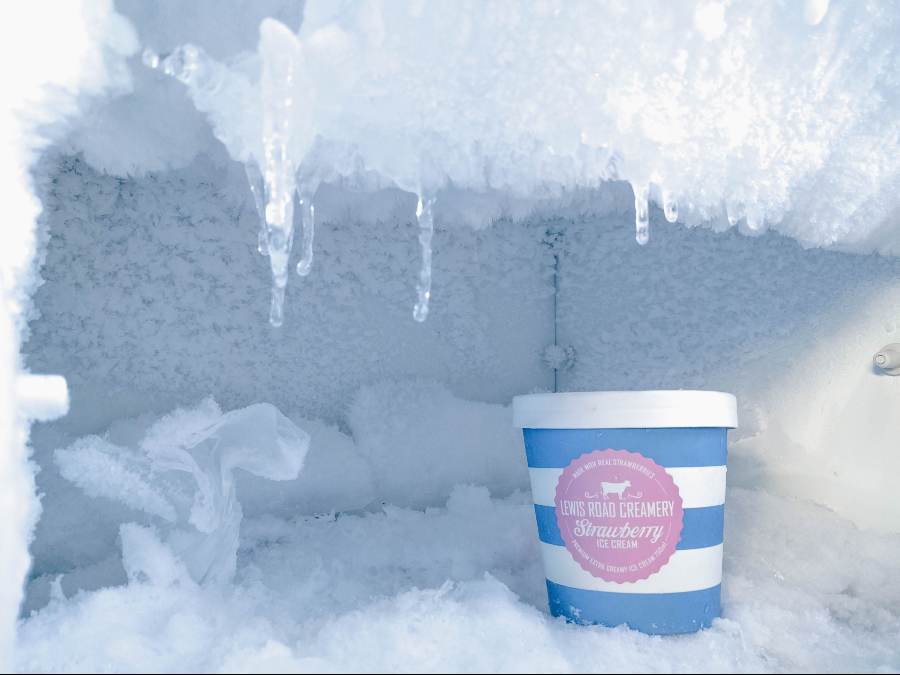
Maintaining the freshness of your ground coffee is critical to the flavor of your brew. Ideally, you want to store whole coffee beans and only grind when it’s time to brew your Java. However, some people prefer bulk buying pre-ground coffee or grinding fairly large amounts of beans and then storing the ground coffee.
In this article, we guide you on how to safely freeze coffee grounds and how to brew with frozen ground coffee.
Can you freeze ground coffee?
Yes, you can freeze ground coffee but you risk staling the grounds in the process. You can pack the grounds in freezer-safe airtight bags and put them in closed canisters that you then place in the freezer. Any air in the freezer bag will affect the grounds. Similarly, you risk condensation problems when defrosting the grounds.
How To Freeze Ground Coffee Safely
Ground coffee is more sensitive to air and moisture than whole beans due to its small granules. Freezing ground coffee is not recommended as it involves a lot of risks that are avoidable by storing the grounds in the pantry away from direct sunlight.
Let’s discuss how to avoid pitfalls when freezing ground coffee.
1. Use Air-tight Freezer-safe Bags
Normal plastic bags are not recommended for use in the freezer as they are likely to break due to the low freezer temperatures. Any opening on the bag will allow in air, moisture, and food odors from the freezer that will be absorbed by the coffee.
Freezer-safe bags are robust and will not deteriorate or crack in the freezer. Squeeze all the air out of the bags after adding the coffee grounds and seal them tightly.
If the original packaging of pre-ground coffee is freezer safe, you may use it in the freezer if you do not intend to open that bag for a relatively long time (5 months or more).
2. Portion the Ground Coffee in Small Batches
Portion the grounds in small batches such as batches that last a week to avoid frequently opening the frozen grounds to scoop some coffee and then freezing again as this will cause condensation in the freezer bag.
Calculate how much coffee you brew per week and then weigh and portion the grounds into bags that can last you a week per bag. If you are not a frequent brewer, you can make monthly portions.
Defrost one portioned bag at a time and keep that bag in the pantry until you have consumed all of it. Avoid opening a bag and returning it in the freezer.
3. Double-Proofing
Put the portioned coffee grounds in a closed freezer-safe container to provide an extra layer of protection. Your freezer is likely to have other food items that can accidentally perforate the plastic bags. A canister prevents such problems and safeguards the coffee bags from direct contact with other items in the freezer.
4. Avoid Opening Frozen Ground Coffee Straight from the Freezer
Every time you remove coffee grounds from the freezer, do not open the packaging immediately. Instead, place the unopened frozen grounds on a table to defrost overnight. You risk condensation setting on the grounds when you open frozen coffee grounds straight from the freezer.
When fully defrosted wipe the bag dry before opening it. The defrosted bag should go in the pantry and use it from there until it’s finished. Defrost another bag overnight and repeat the process.
5. Freeze Fresh Coffee Grounds
Ground coffee has a shelf-life of 2-5 months. You want to freeze grounds that are closer to the roast date and far from the best-by date. For example, coffee grounds that are in their fifth month have lost most of their freshness and should be brewed as fast as possible and should not be frozen.
Frozen coffee grounds can last up to 24 months before they lose their freshness.
6. Place the Grounds in the Back of the Freezer
The back of your freezer is the coldest part and that’s where you want your coffee grounds to go so that they are not affected by the temperature variations that occur when the freezer is frequently opened.
Wrap up about Freezing Coffee Grounds
It is possible to freeze coffee grinds safely but the process involves a lot of pitfalls. You may want to portion the grounds in weekly batches and use airtight plastic bags that are safe to use in the freezer and then double-proof by putting the bags in closed containers.
When removing frozen coffee grounds from the freezer, be sure to fully defrost them before opening the freezer bag to prevent the surrounding air from forming water droplets on the ground coffee.
You do not want to return opened grounds back in the freezer unless it’s very necessary. Squeeze out all the air in the opened bag that has to go back in the freezer.
Avoid freezing coffee grounds altogether, unless you have a lot of ground coffee or you need to store ground coffee for a long period such as more than five months.
FAQs About Whether You Can Freeze Ground Coffee
Can You Make Coffee with Frozen Coffee Grounds?
No, you may want to naturally defrost the frozen grounds, preferably, overnight before using them to make coffee. Unlike frozen coffee beans that you can use directly from the freezer, ground coffee will condense the surrounding air and may form lumps that can affect the brewing process.
The grounds will also be too cold and will considerably affect the temperature of your brew.
Should You Freeze Ground Coffee?
As earlier discussed in this article, the risks involved when freezing ground coffee are too high as compared to the alternative: buying your coffee in small batches so that you are always using fresh coffee grounds to make coffee. Coffee grounds are perfectly fine in the pantry in airtight vessels or bags and they do not need to take up space in your freezer.
Therefore, unless you have huge amounts of ground coffee that you can not consume fast enough, or you need to store preground coffee for a long time, you are better off storing your coffee grounds in the pantry.

